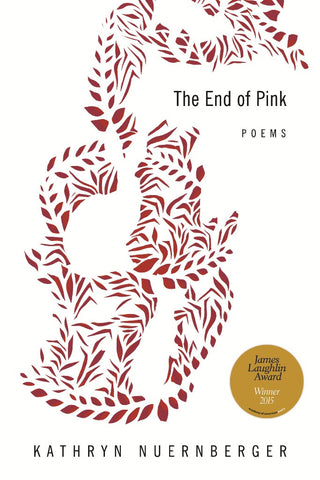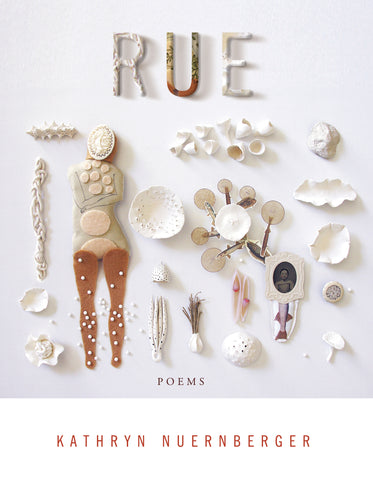
About This Title
Winner of the 2015 James Laughlin Award, Kathryn Nuernberger’s The End of Pink is populated by strange characters—Bat Boy, automatons, taxidermied mermaids, snake oil salesmen, and Benjamin Franklin—all from the annals of science and pseudoscience. Equal parts fact and folklore, these poems look to the marvelous and the weird for ways to understand childbirth, parenthood, sickness, death, and—of course—joy.
“When Cortez Came”
Cortez in Hispaniola.
Cortez in Santo Domingo
Cortez in Peru.
Every night there arose a sign like and antler of fire.
Many fled in canoes, crashing and sinking
into each other in their haste.
Every night was heard the jaguar
of a woman weeping.
The waters of the lake boiled up crackling.
A comet appeared,
bursting into three heads.
Men were fighting. They rode on the backs of deer.
A brown crane
with a breast like a mirror
showed Montezuma what was becoming.
A brown crane
ushered in the thistle people,
single-bodied, two heads.
Before his horror and his fear, they vanished,
little purple smoke
of what was becoming.
It pierced the trees of heaven
to their very core.
I like the parts about the deer
and the crane.
“Thistle people”
is a pretty way to say it.
Praise for The End of Pink
“The remarkable designs of a landscape created by Kathryn Nuernberger give us such a stamp of hoof, wonder, and wit—so much wisdom and understanding of what it means to truly fling your body into the world. This is an unforgettable collection of sly-sexy poems of desire, grief, and motherhood, finally offering up the ‘truth of it, the refracted light and blooming anemones of it, the red / coral and unfurling starfish of it.’ But perhaps the greatest gift from The End of Pink is the insistence of ‘how very emerald joy is, how very leafed with lapis and gilding’—a passionate aide-mémoire to hold off a surrender to the dark.”—Aimee Nezhukumatathil
“I love the ways in which The End of Pink confronts the idea of wisdom, and deftly deconstructs it. When is fable and myth more accurate than science? When does graybearded public authority submit to the wisdom of messy, private experience? How does the wisdom of the book measure up against the wisdom of the body—the female body especially? What do we do when our everyday language fails to represent reality? Poetry, of course, is the answer to this last question, and it is the poetry of Kathryn Nuernberger in particular that makes a place for us in our uncertainty. Not a safe place, not a place of comfort, but a place of surreal, dark beauty that knows us all the same.”—Nicky Beer
Publication Date: September 13, 2016
ISBN: 978-1-942683-14-8
© BOA Editions, Ltd. 2016


